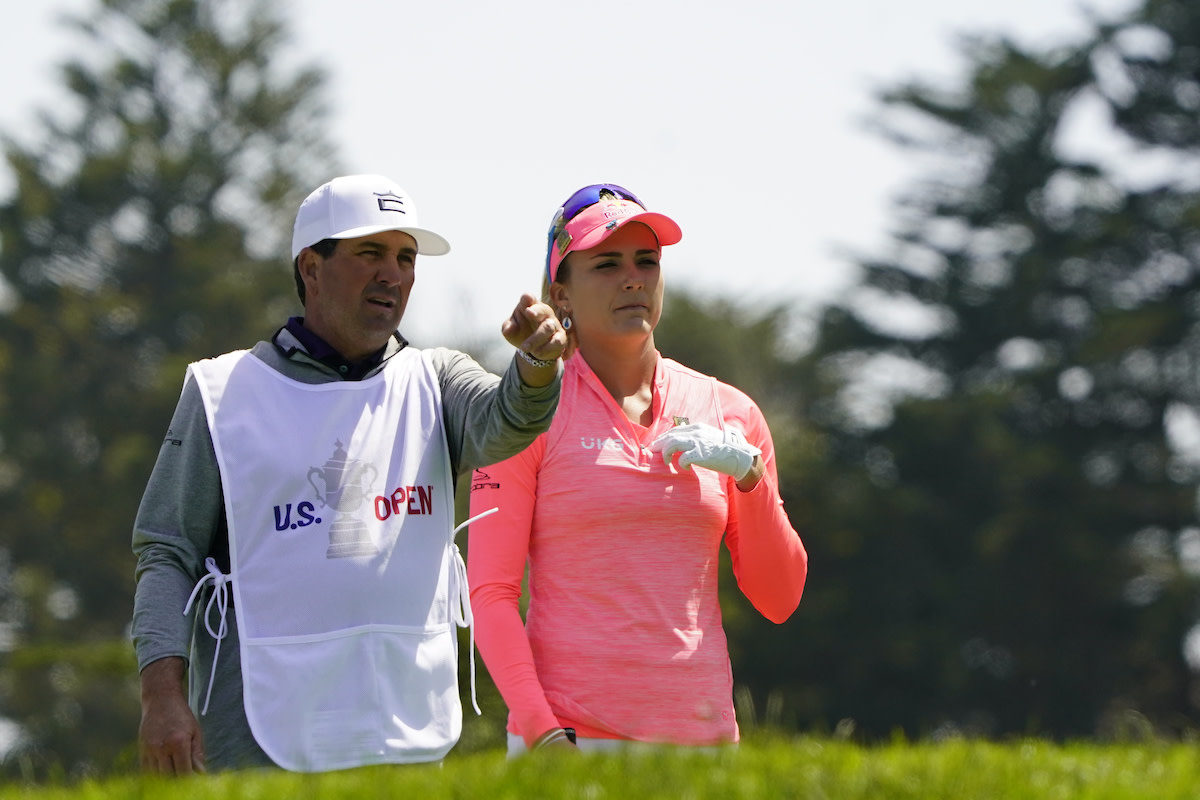
Biggest threat to touring pros comes with only 1 cure
An outbreak is among us, and let’s hope it’s contained for fear of uncontrolled spread. And it can only be curbed with attitude. The disease is unprofessionalism, and it has reared its immature and troubling head in an unseemly and public way.
Lexi Thompson lost a five-shot lead Sunday on the back nine in the final round at the U.S. Women’s Open at Olympic Club. She’s not the first to do such a thing on the shores of Lake Merced. Arnold Palmer coughed up a seven-stroke advantage on the incoming nine in the 1966 U.S. Open before eventually losing to Billy Casper in a playoff the next day. Palmer didn’t duck and run after the round. Although he was understandably shocked and deflated, he stuck around to patiently answer reporters’ questions. He was a professional, and a consummate one, at that.
Thompson’s agent did her no favors by calling a halt to the media interviews after only two questions after the final round. If he thought he was protecting her, he’s wrong. What’s more, it’s not his job or his jurisdiction in that situation. Thompson, who is 26, might not have been required to face the media, but she does have an obligation as a professional athlete. This was her 15th U.S. Open, and she has been answering reporters’ questions all that time.
If Thompson wants another example, she only has to turn to Greg Norman, who infamously lost a six-stroke lead in the final round of the 1996 Masters. It was by far the most devastating day of Norman’s career.
Yet, he sat in the interview room in the media center at Augusta National, where every seat was taken and journalists were standing in the back and seated in the aisles and in the front. He answered every single question until no more were left to ask. He was equal parts honest and gracious. Norman’s standing in the game – as a person, not as a player – rose exponentially that day.
And Thompson doesn’t need any apologists, either, a role Morgan Pressel was all too happy to perform. Pressel, a contemporary of Thompson’s as a player, was the lead analyst for the NBC/Golf Channel telecast of the final round of the Women’s Open and was asked by Rich Lerner in the time leading to the playoff whether Thompson “caved to the pressure.”
Pressel sounded downright indignant. “Caved?!” she spat out.
Lerner immediately backed off. " 'Caved' is a harsh word,” he said before lobbing a softer pitch Pressel’s way. “Maybe ‘succumbed’?”
Pressel shuffled and stammered and never answered the question. Instead, she said, “It’s hard out there.”
That’s her explanation? It’s hard? It’s supposed to be hard. It’s the Women’s Open. Pressel is fairly new to television, but don’t make the excuse for an epic collapse by saying it’s hard. Champions overcome hard.
She concluded with, “I think all in all, it was an encouraging week for Lexi.”
Did she really say that? Pressel should have asked Thompson if she was encouraged. Someone should have. Is this what the concept of the “participation trophy” has wrought?
Speaking of which, Jon Rahm painted himself into a corner because of his action – or inaction – that resulted in his throwing away a PGA Tour victory, one in which he held a huge lead.
Rahm, who is 26, was widely praised for his statement – crafted, no doubt, by his agent – that he was “very disappointed in having to withdraw from the Memorial Tournament. This is one of those things that happens in life, one of those moments where how we respond to a setback defines us as people. I’m very thankful that my family and I are all OK. I will take all of the necessary precautions to be safe and healthy, and I look forward to returning to the golf course as soon as possible.”
Here's what was conspicuous by its absence: Rahm failed to take responsibility for this outcome. He was no victim here; he was a volunteer. His statement said he would take “necessary precautions,” but why hadn’t he done so before the Memorial?
So, while it’s popular to praise Rahm for his mature response, he was immature, selfish and cavalier in his attitude about failing to be vaccinated and putting himself in harm’s way, especially now that he has a wife and an infant son.
Immature is precisely the way to describe this juvenile feud between Brooks Koepka and Bryson DeChambeau that never should have reached this asinine level. Now, the hissing contest has devolved to the point at which at least 10 spectators were ejected from the Memorial for heckling DeChambeau by yelling “Brooksie” at him, which BDC started by taunting Koepka.
And the 31-year-old Koepka, via Instagram, offered free beer to anyone whose time was “cut short” at the Memorial. He said he was just trying to “grow the game.”
Now that it’s gone too far, the 27-year-old DeChambeau wants to use some hand sanitizer and turn the solution of this problem over to his parents, er… PGA Tour commissioner Jay Monahan. Why don’t Koepka and DeChambeau sit down face-to-face, adult-to-adult – maybe over a real beer – and take individual responsibility for their actions? Shake hands – or fist bump – and vow not to let this happen again.
It’s fashionable for players to assemble and surround themselves with a “team” of instructors and trainers of various types. Too bad they don’t have one to teach them how to be a professional. And a grown-up.
Sign up to receive the Morning Read newsletter, along with Where To Golf Next and The Equipment Insider.